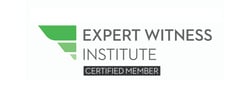Courts often deal with cases involving evidence that exceed a lay person's understanding. To ensure the court has a comprehensive understanding of the presented evidence, experts in the relevant field are often called to act as expert witnesses and assist the court. In both civil and criminal matters, digital forensics experts are typically required to testify on complex technical matters where the presentation of digital evidence is pertinent to the case.
In this article, Ryan Shields and Katarina Zotovic highlight four considerations when engaging an expert witness. As vetted members of the Expert Witness Institute, we have incorporated the experience of our Digital Forensics experts to provide their valuable insights and perspective on being instructed in an expert witness capacity.
Engaging an expert
Securing a reliable and suitably qualified expert witness with availability to meet reporting deadlines, meetings between experts, and trial dates, can be a daunting task.
For instance, in digital forensics, the pool of experts with the requisite qualifications and experience is relatively small. Many experts have their schedules booked with trial dates for ongoing cases, sometimes months or even years in advance. Hence, engaging an expert at the earliest opportunity increases the likelihood of their availability on the agreed trial dates.
However, early engagement isn't just about securing availability. It's also crucial to consider the time needed for evidence collection, preservation, forensic analysis, and the preparation of court-compliant reports. This process often involves lengthy communications between counsel and the opposing party to obtain evidence and agree on the scope of analysis. Maximising the expert's time will, therefore, minimise the risk of delays to agreed timeframes, including trial dates.
Defining the scope of the instruction
In the initial meeting between a prospective expert and the instructing solicitors, it is beneficial to engage in an open dialogue regarding the case's background and the expert's instructions. This discussion aids in determining the expert's suitability for the role and helps align expectations regarding the potential scope of the instruction.
Once the expert has a clear understanding of the potential instruction, they can advise on the evidence (or evidential sources) they require for their analysis. This collaboration between counsel and the expert allows counsel to leverage the expert's expertise in making necessary applications to court or drafting letters to the other side. In cases where another expert has also been appointed by the other side, it is crucial that the necessary applications are made to ensure both experts have access to the same evidence.
Although an expert must possess the requisite expertise to opine on the particular issues, the availability of evidence in a timely manner is the key factor enabling the expert to fulfil this duty. Otherwise, the expert's capacity to provide a reliable opinion on all the issues agreed upon in the scope of the instruction will be restricted—a limitation they are obligated to disclose in their report.
Duty to the court
An expert can be appointed as an expert witness by either party, both parties, or the court itself. Regardless of who appoints the expert witness, the expert’s overarching obligation is to the court, rather than advocating for any party’s position. Their duty is to remain impartial, independent, and avoid partisanship.
Throughout the presentation of written and oral testimony, including under cross-examination, an expert witness must maintain their objectivity and independence from either side. While the expert witness bears a significant responsibility in this regard, it is equally important for legal counsel to respect the expert's duty and support them in remaining fair and impartial during the preparation of their report and oral testimony. This ensures that the expert can withstand scrutiny under cross-examination when challenged on their independence.
When the expertise presented is objective, unbiased and considers both sides, the expert becomes a key witness that the court can trust, regardless of which side instructed the expert.
It is important to note that an expert can also be engaged in an advisory capacity. An expert advisor can assist counsel in their case strategy, cross-examination preparation, and provide expert advice to counsel and their clients during the proceedings. In such cases, the expert advisor’s primary duty is not to the court but to advise their client effectively. An expert who is formally engaged as an advisor will not be able to testify in court as an expert witness in the same proceedings.
The role of legal counsel
In accordance with the witness preparation guidance issued by the General Council of the Bar, it is common for counsel to review the expert’s report before it is formally submitted to court. In this capacity, counsel play a crucial role in ensuring the expert has addressed all issues on which they have been instructed. Counsel may also wish to assess the report's structure and contents to ensure it meets court requirements, or they may give feedback to the expert on technical concepts which may not be clear to a layman. However, this primarily remains the responsibility of the expert witness; an experienced expert will understand how to present a court compliant report targeted towards a layman.
However, to ensure the admissibility of the expert's evidence in court, the guidelines emphasise the necessity for the expert report to remain entirely independent and uninfluenced by external parties. Although counsel is encouraged to review and provide input on draft reports, it is crucially important that they refrain from drafting any part of the report, particularly the expert's opinions.
Counsel can further assist experts in their preparation for oral testimony by familiarising them with the courtroom setting, trial procedures, and relevant legislation and regulations. They can also offer guidance on delivering clear and concise testimony that remains within the expert's area of expertise. However, it is crucial to exercise caution to prevent any actions or remarks that might be construed as an attempt to manipulate the expert's testimony, or any preparation that could be perceived as “coaching” the witness.
The involvement of expert witnesses in legal proceedings is critical in ensuring that courts can interpret complex technical evidence. Understanding the multifaceted role of expert witnesses, their overriding obligation to the court, and the benefit of their early engagement in the proceedings, can all assist counsel in their preparation to instruct an expert, and will allow the expert to fulfil their duties effectively.
Legal counsel also plays a crucial role in an expert’s testimony. They should support the expert by ensuring the expert has everything they need to address all relevant issues and that any necessary applications are submitted in a timely manner. However, it is imperative that counsel respects the expert's independence and refrains from influencing their opinions. It is also important for counsel to strike a balance, providing support while avoiding any coaching or manipulation.
 If you have an interest in learning more about our expert witness services, please get in touch with Ryan Shields or Amy Francis, who together boast over 15 years’ of experience in the digital forensics field, and regularly act as expert witnesses and expert advisors to clients in the UK and overseas.
If you have an interest in learning more about our expert witness services, please get in touch with Ryan Shields or Amy Francis, who together boast over 15 years’ of experience in the digital forensics field, and regularly act as expert witnesses and expert advisors to clients in the UK and overseas.






